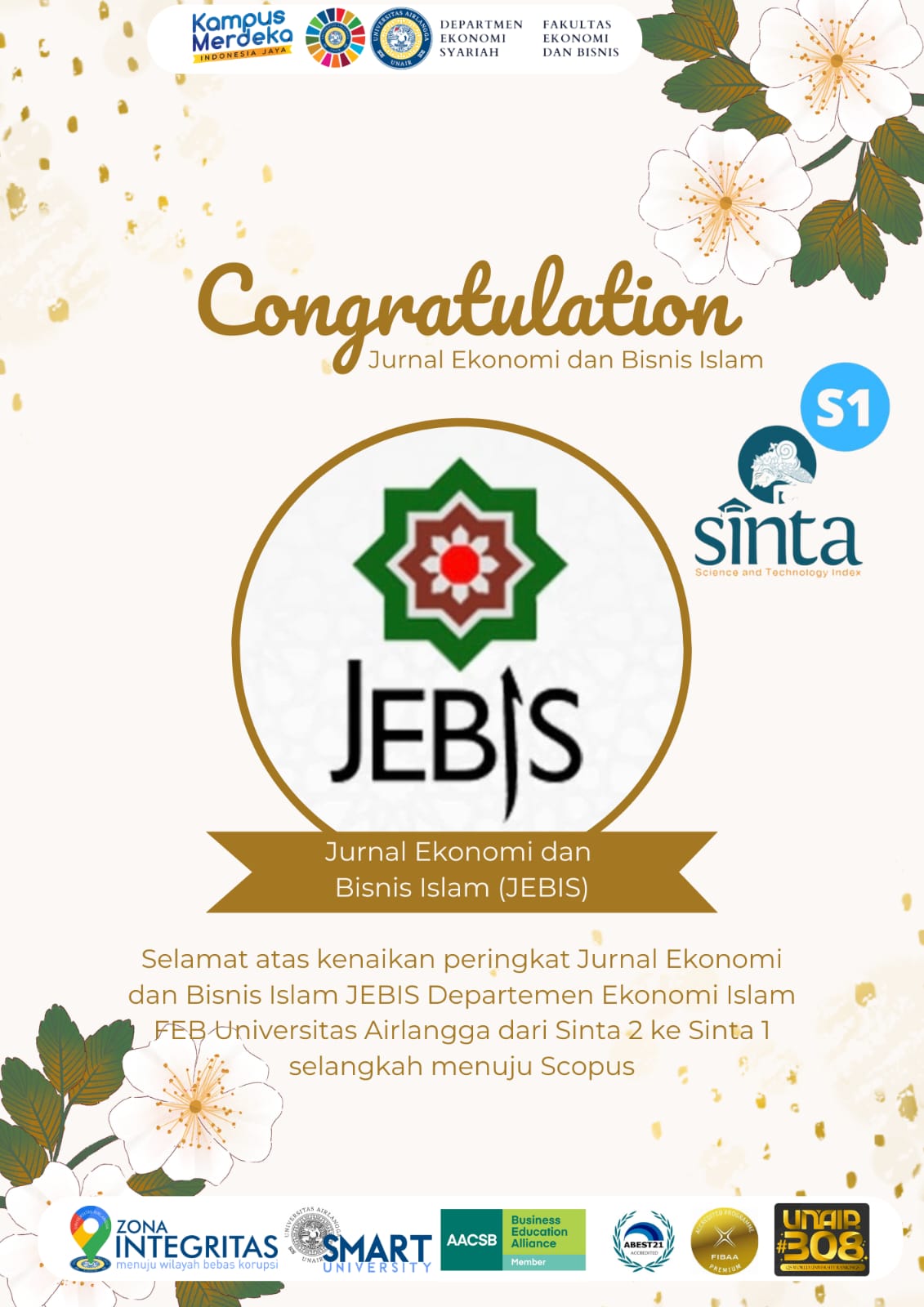THE RELATIVE CONTRIBUTION OF DEBT TO INDONESIAN GROWTH: A CASE STUDY USING WAVELET ANALYSIS
Downloads
This paper is an attempt to develop an account of the emerging discussion on debt versus growth in the fiscal policy. Conventional and Islamic economists and finance specialists have both agreed that there is indeed relativity in the benefit of debt. There are significant numbers of studies and literature in both domains that detail and demonstrate their doubts on the use of debt to finance the national demand. As the matter of fact, the sovereign debt crisis has pointed debt, together with corruptive government, as the culprit for unstable growth and escalated the social problems. At this juncture, this paper asks to contribute the discussions with a hypothesis that debt mechanism is the fountain source of the ineffectiveness of the fiscal policy -particularly of Indonesia. Using Wavelet, the study found that in fact, debt increases the volatility of the economy. In other words, the immediate benefit of debt could not justify for future growth loss. For policy-makers, this finding is of their interest to avoid any political cost due to the myopic view of the budget management. For Islamic finance, this finding fuels the discussion at the next level of designing Shariah-compliant risk-sharing papers that hope to positively align the need of the policy makers and the country's future.
- Every manuscript submitted to JEBIS must obey to the policy and terms set by Journal of Economics and Business Islamic.
- Publication rights on the contents of manuscript published by JEBIS is owned by JEBIS under consent and approval by the corresponding author(s).
- Full text of electronic publication of manuscripts can be accessed free if used for the purpose of education and research according to copyright regulation.
- Share ” copy and redistribute the material in any medium or format
- Adapt ” remix, transform, and build upon the material
- You must give appropriate credit, provide a link to the license, and indicate if changes were made. You may do so in any reasonable manner, but not in any way that suggests the licensor endorses you or your use.
- You may not use the material for commercial purposes.
- If you remix, transform, or build upon the material, you must distribute your contributions under the same license as the original.
Creative Commons Attribution-NonCommercial-ShareAlike 4.0 International License.






.png)















